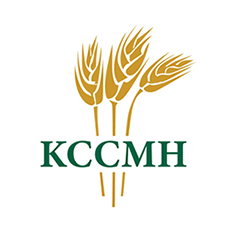Kit Carson County Memorial Hospital
Medicare Information
Medicare vs. Medicare Advantage
Before making a decision between a Medicare Advantage plan and a traditional Medicare plan, it’s essential to conduct thorough research. Deciding between Medicare and Medicare Advantage involves assessing your specific health needs, budget considerations, and preferences for healthcare providers. What may initially seem like a favorable deal could potentially result in higher costs or pose challenges in accessing healthcare. Taking the time for a comprehensive review of your coverage options is a valuable effort. Ultimately, the right choice depends on your individual circumstances.
Medicare
Medicare is a federally administered program that provides health insurance for individuals aged 65 and older or those with certain qualifying disabilities. It consists of two primary components:
Medicare Part A (Hospital Insurance): Covers inpatient hospital stays, skilled nursing facility care, hospice care, and some home health care.
Medicare Part B (Medical Insurance): Covers outpatient care, doctor visits, preventive services, and some home health care.
While Medicare offers comprehensive coverage, there are potential out-of-pocket costs, such as deductibles, copayments, and coinsurance.

Medicare Advantage
Medicare Advantage, also known as Medicare Part C, is an alternative to traditional Medicare. Offered by private insurance companies approved by Medicare, Medicare Advantage plans combine the benefits of Part A and Part B and often include additional coverage, such as:
Prescription Drug Coverage (Part D): Many Medicare Advantage plans include prescription drug coverage, consolidating your healthcare needs into a single plan.
Dental, Vision, and Hearing Services: Unlike original Medicare, some Medicare Advantage plans may cover routine dental, vision, and hearing services.
Wellness Programs: Some plans offer wellness programs, gym memberships, and other health-related benefits to support your overall well-being.
Out-of-Pocket Cost Limits: Medicare Advantage plans typically have annual out-of-pocket maximums, limiting your financial exposure for covered services.
Network Restrictions: Medicare Advantage plans often operate within provider networks, and choosing healthcare providers within the network can result in lower out-of-pocket costs.
It’s important to note that while Medicare Advantage plans offer additional benefits, they may also have restrictions on out-of-network care. It’s crucial to carefully review plan details to ensure it aligns with your healthcare needs and preferences.
Traditional Medicare is best for you if:
Medicare Advantage is best for you if:

